The Iranian COVID-19 response initiative
As the 2-year mark for the ongoing COVID-19 crisis approaches experts and health officials predict that the pandemic will improve significantly by sometime next year. Meanwhile, the new COVID variant Omicron has spread rapidly, to the alarm of researchers worldwide.
Of course, some of these predictions may prove accurate, but factors like the United States reopening businesses too soon this year, or similar miscalculations in pragmatic management of the crisis by other governments worldwide, could delay progress.
So, it all comes down to the basic fact that the sooner everyone gets vaccinated, the more likely we’ll see improvement and get past the current crisis in the coming months.
That, of course, is easier said than done, for instance, inadequate vaccine distribution is still a major international problem, while vaccine hesitancy has been increasingly surfacing in different parts of the world.
Let’s see how competently Iran has managed the critical mission of responding to the pandemic so far, and what the President’s COVID-19 plan involves.
Iran is currently bracing itself for the new wave of COVID-19 infections, even though its nationwide vaccination efforts have accelerated in recent weeks.
Meanwhile, Iran’s newly inaugurated president, Ebrahim Raeisi, has taken the helm at an extraordinarily difficult time for the country.
He has inherited two major challenges: a public health emergency and a sanctions-stricken economy.
Aside from the international community’s shocking response to the sanctions imposed on Iran, we’ve had the same issues concerning vaccines. Countries around the world were trying to safeguard their communities by vaccinating their population.
Just like the sanctions, they didn’t respond well to Iran over the vaccines. Although Iran had paid for all its vaccines in its basket, there were delays in the delivery of the jabs.
This created an opportunity for our scholars and scientific groups to start their work on vaccine production.
Dr. Kamal Heidari, Health Deputy, Ministry of Health
Among the nations hardest hit by the coronavirus, Iran that has had to face off against the disease while also being targeted with some of the harshest and widest-ranging, inhumane and unlawful sanctions the US has ever imposed on any country.
Iran has one of the best medical and public health infrastructures in West Asia and has been “exporting” its cadre of physicians abroad for decades.
However, despite the frontline health workers’ heroic efforts to save lives, it may still be many months before the Coronavirus is eventually contained.
The crisis ends when there are no patients in the hospitals or the death toll is on the decline. This is a scenario that the world has defined for the end of the pandemic.
This aligns well with Secretary General of the WHO Mr. Tedros’s prediction that by vaccinating 70-percent of the population by the end of 2022, the COVID-19 crisis will end.
Therefore, considering that our country is nearly done with the second dose of vaccinations and has managed to inoculate 70 percent of its population and is now rolling out booster shots, we predict that the COVID-19 pandemic would be over in early 2022, or before the Iranian New Year.
Dr. Mostafa Ghanei, Chairman of Iran’s National Coronavirus Vaccine Committee
Iran has been one of the world's most severely affected countries by the pandemic.
There have been more than five million cases of infection and 130,000 deaths in the country of under 85 million.
Over 51,000 children have lost a parent to the Covid-19 pandemic, according to Iranian welfare authorities. It is feared the impact could be far-reaching.
In the first year of the crisis more than one million Iranians lost their jobs, as reported by Iran's Islamic Parliament Research Center.
The government’s reluctantly imposed lockdowns have also severely affected the economy, which was already struggling due to the coincidence of imposed economic sanctions, the fall in oil prices, corruption and mismanagement.
Rivalry, particularly by the US, has played a major role in hampering Tehran’s ability in dealing with the crisis and severely limiting Iranian access to medicine, health supplies, and funds.
No personal protection equipment was available, not even facemasks.
That was when all local workshops joined efforts to produce masks, coveralls worn by medical staff, environmental disinfectants, and others. Institutions and government bodies also helped procure the equipment.
We faced a severe wave of infections but lacked ICU beds, ventilators, and other much-needed equipment. We also had a shortage of both basic and COVID-19 specific medicines, all of which was due to oppressive sanctions against Iran.
In a matter of a month to a month and a half, we started producing everything, including ventilators which are very advanced devices, and ICU beds.
Dr. Kamal Heidari, Health Deputy, Ministry of Health
In light of that, the United Nations High Commissioner for Human Rights, Michele Bachelet, has urged the US to relax sanctions on Iran and other countries for fear that they contribute to the collapse of medical systems, in turn, contributing to the growth of the pandemic in neighboring Countries.
“Both for global public health reasons, and to support the rights and lives of millions of people in these countries, sectoral sanctions should be eased or suspended,” she said in a statement. “In a context of global pandemic, impeding medical efforts in one country heightens the risk for all of us.”
Facilities were provided for more people to have better access to basic outpatient services, selected centers were formed, and throughout the country, our colleagues received the necessary training and were deployed.
People in all geographical locations then had access to trained doctors, laboratory teams, and so on, to avoid having to hospitalize them. This is one of our achievements.
Before that, our diagnostic system had to be equipped. Hundreds of labs were equipped within a month with domestically-made test kits.
Dr. Kamal Heidari, Health Deputy, Ministry of Health
In fact, scholars in the field of social sciences claim that Iran has managed to take advantage of its social capital in mobilizing semi-governmental and popular institutions in the fight against COVID-19.
This has been a display of effective governance triggering a sense of social responsibility to serve society and help medical staff.
According to Steven A. Cook, a Senior Fellow for Middle East and Africa Studies at the Council on Foreign Relations (CFR), West Asia is a region that has fragile public-health systems, and in a variety of important cases, not a lot of resources in order to deal with the pandemic.
Many of the countries in the region, after getting off to a slow start, have taken some prudent steps, of varying degrees of effectiveness, such as banning flights to and from certain countries, shuttering borders, instituting curfews, and doing their very best to marshal medical gear.
But overall, like the United States, most of these countries have been relatively slow.
It is imperative to prevent human transmission of the virus since by going from one person to another the virus familiarizes itself with human physiology and mutates into more dangerous strains that can infect almost everyone.
Depending on which country foreign travelers are coming from, we ask for a negative COVID-19 test or a vaccine certificate. Arrivals from designated red countries are banned, like South Africa, where a new variant has emerged.
Arrivals from such countries are banned except for special cases. For example, an Iranian national who’s working there and is coming back is regarded as a special case.
But they’re treated differently from arrivals from other nations.
Farshid Rezai, Infectious Diseases Specialist
Within the context of the region Iran has a rather well-developed public health infrastructure in the sense that it has managed to erect hospitals and clinics even in remote parts of the country.
So unlike Iraq, for example, Iran has had a firmer base to take off from in responding to the crisis.
Indeed, life threatening COVID-19 infections are decreasing in Iran. The public vaccination program against the coronavirus has gained momentum in recent weeks with a hike in the import of vaccines and the opening of new round-the-clock vaccination centers.
We have vaccines in sufficient quantities and beyond the need for injection in our storage rooms.
Some are still reluctant to receive their doses, but we hope we can overcome this challenge so the nationwide vaccination campaign can be completed.
We plan to roll out booster shots by domestically-made vaccines, considering the knowledge-based companies’ work in producing them.
Dr. Mostafa Ghanei, Chairman of Iran’s National Coronavirus Vaccine Committee
For economic reasons the country can’t just remain in lockdown indefinitely. But restrictions have on occasion appeared somewhat haphazard; tight until just before holiday season when people tend to burst out into bazaars and go on domestic trips.
Doctor Rezaii at the health ministry is optimistic the already-effective nationwide vaccination programme and vaccine uptake will soon pick up.
International volunteer day
We have more than 60 universities; some of our provinces have several universities inside the province. About how many volunteers there are, I need to say that the spirit of voluntary work is diverse.
The Red Crescent (Society) is training its volunteers, the same can also use the training provided by the Health Ministry. The volunteer could be a member of the Basij Organization.
There are some two-million student volunteers in Iran. We have about 12-hundred volunteers in the seminary.
It’s hard to give an accurate figure, but we take pride in the number of volunteers. But we always welcome more people.
Farshid Rezai, Infectious Diseases Specialist
Media reports indicate that Iran is fighting COVID-19 while also fending off a vicious, and probably state-backed, propaganda offensive.
Well-organized operatives in exile spend their days spreading misinformation about the illness, trolling journalists and others who are struggling to separate fact from fiction.
Across the internet, opposition operatives have forged documents and even faked audio recordings to exaggerate the effects of the pandemic and undermine public trust.
Bad information on the internet about the coronavirus is already needlessly costing hundreds of lives, as was the case when some Iranians heeded advice in fake articles to drink ethanol, or bleach, in an attempt to ward off the coronavirus
Iranian authorities had previously faced criticism over the slow pace of the procurement of vaccines, but tens of millions of doses have been imported in the past few months, the vast majority of which are either Sinopharm or AstraZeneca.
According to the Health Ministry, all vaccines can be used as booster shots for those injected initially. Therefore, all vaccines that are on the way will be used as booster shots, so the vaccine producers can’t complain they were left out because their product came out later.
We saw that the immunity in people over 60 decreases in about 4-6 months after getting fully vaccinated, exposing them to the risk of infection.
We’re likely to see a similar pattern to flu in COVID-19, meaning that we have to inject booster shots in specific age groups with higher death rates. We have to continue to build up our domestic vaccine reserves.
We’ll be needing at least somewhere between 20-30 million doses as early as mid-March.
Dr. Mostafa Ghanei, Chairman of Iran’s National Coronavirus Vaccine Committee
But even as the vaccine rollout has gathered pace, the health minister said authorities were a long way from inoculating most of Iran’s population of 85 million.
About 75 percent of the target population has now received at least one dose, Dr. Einollahi said, adding that about 35 percent have been fully vaccinated.
While vaccines are now readily available in most places across the country, vaccine hesitancy appears to have become a concern.
The polling agency ISPA has reported that 14.2 percent of adult Iranians have zero inclination to be vaccinated, mostly because of a lack of trust in the jabs and fear of side effects.
Iran's health ministry has proposed a “smart management platform” that would keep restrictions in place only for those who are not vaccinated and do not adhere to health protocols. Officials have said activities can go back to normal if service providers, service receivers, and venues all follow protocols closely.
At first, we thought this problem would be solved in a month or two, but over time we saw that the behavior of the virus is much more complex. We then supposed that the virus, like the rest of its family, would go away in the summer season, but then realized that its behavior is different.
Therefore, we started the fight against the outbreak and produced the equipment and facilities needed for it. Everyone came together and we witnessed a new form of empathy and popular participation.
All our capacities and institutions were mobilized. Plans were made to create quick-response teams. In addition, plans were made so screening and diagnosis would be done across all urban and rural areas on a door-to-door basis to facilitate the process.
We also made provisions for taking care of people in their homes and giving them basic training for it.
Dr. Kamal Heidari, Health Deputy, Ministry of Health
Vaccines will not be mandatory for the general population, according to officials, but some individuals will have no choice but to get inoculated. Government employees in Tehran will no longer be able to continue working remotely, and will have to receive at least one dose to be able to go back to working at the office.
When you enter a public place, you must not be a threat to anyone. There must be a valid reason why somebody isn’t vaccinated. It could be a medical reason because there are now billions who’ve received their doses.
If the reason is clear, the problem can be solved. More often than not, people who’ve explained their reasons for avoiding their vaccines will change their minds. If somebody has a medical reason for skipping the jabs, they must try other methods including always wearing a facemask.
We must ensure they’re not infected before allowing them to enter public places.
Farshid Rezai, Infectious Diseases Specialist
Schools reopened in late September with most classes being conducted online, but now officials have allowed students to return to school as part of a multistep plan. Students aged between 12 and 18 are now being called to receive jabs, but vaccination is not mandatory.
The Friday prayers in Tehran, which have been on hold for more than 20 months, have also been revived in recent weeks.
Cities across the country have been classified 'red', 'orange', 'yellow', and 'blue'. Red being the highest level in Iran’s color-coded scale denoting the severity of COVID-19 outbreaks. The health ministry recently reported that 22 cities are rated orange, 207 cities are yellow, and 219 cities are blue now.
Today many age groups have been vaccinated and are going on to their third jabs, such as the elderly, rare-disease patients, teachers, university professors, health professionals and veterans. And for the past couple of months students have also been vaccinated!
The unvaccinated account for some 85 percent of the death toll; this proves the effectiveness of the vaccines. The move the government made, despite all the sanctions and economic situation, to procure the medicine partly from imports and partly from inside Iran as earlier planned in the National Vaccine Document was indeed a valuable and laudable one.
Dr. Kamal Heidari, Health Deputy, Ministry of Health
President Raeisi has articulated more serious measures to ensure adherence to health and hygiene protocols and control border traffic so as to prevent further spread of the coronavirus.
Raeisi recently told members of the national coronavirus campaign headquarters that Iran has to come up with an extensive plan for mobilizing volunteer forces to fight the rapid spread of the disease.
The volunteering spirit is respected in all countries. Volunteers are people who not only take care of themselves but also have the spirit to take care of other people in the community.
They are selfless and that is why volunteer day is a respected day in the world. This day is observed all over the world. We also marked the day in Iran and honored several people symbolically, including students, members of Basij, Red Crescent, and others.
Volunteering requires a spirit. It’s not like having a desk job. They’re honorable people.
Farshid Rezai, Infectious Diseases Specialist
“The universal plan for overhaul in methods of fighting the coronavirus will be compiled in a special committee using the experiences of the past one and half years of the country,” said the president.
He said the plan would include clear action guidelines on hygiene protocols, vaccine production, and imports as well as on government support for health staff and businesses affected by the virus.
If you compare with the neighboring countries, we are the only nation in the region that had our vaccine production and entered the list of the World Health Organization as a producer.
Another point is that some researchers are still working on new vaccines. Nobody’s abandoned the work. Also, we faced pressure from the media who were asking why we started working on so many different vaccine platforms.
But it’s now proven that some people respond better to protein-based vaccines, while others might benefit better from those created by attenuated vaccines, those made by proteins on the viruses, and the mRNA type ones. These are all evidence that if we focused on a single platform, we might not have succeeded.
Dr. Mostafa Ghanei, Chairman of Iran’s National Coronavirus Vaccine Committee
On vaccinations, President Raeisi vowed that his administration would continue to support domestic vaccine production although he said no efforts will be spared to receive abundant supplies from abroad.
Iran has contracts signed with international manufacturers and some 100 million doses of coronavirus vaccines should be imported by the end of 2021.
The COVAX facility has pledged to provide Iran with 16.8 million doses of the vaccine.
Iran condemns IAEA inaction as US-Israeli aggression targets nuclear facilities
Iran FM says to issue protest to Kuwait over US aircraft downing
IRIB chief says Tehran compound hit in Israeli-US aggression, broadcasts continue
US-allied fuel tanker attacked by Iran still burning in Strait of Hormuz: IRGC
Attacks on hospitals, schools ‘strike at life itself’: Pezeshkian
Iran’s attacks on US bases ‘legitimate’ response to source of aggression: Araghchi
IRGC targets US intelligence centers, military depots in 11th wave of attacks
US-Israeli attacks damage 5 hospitals, medical centers in Iran: MP


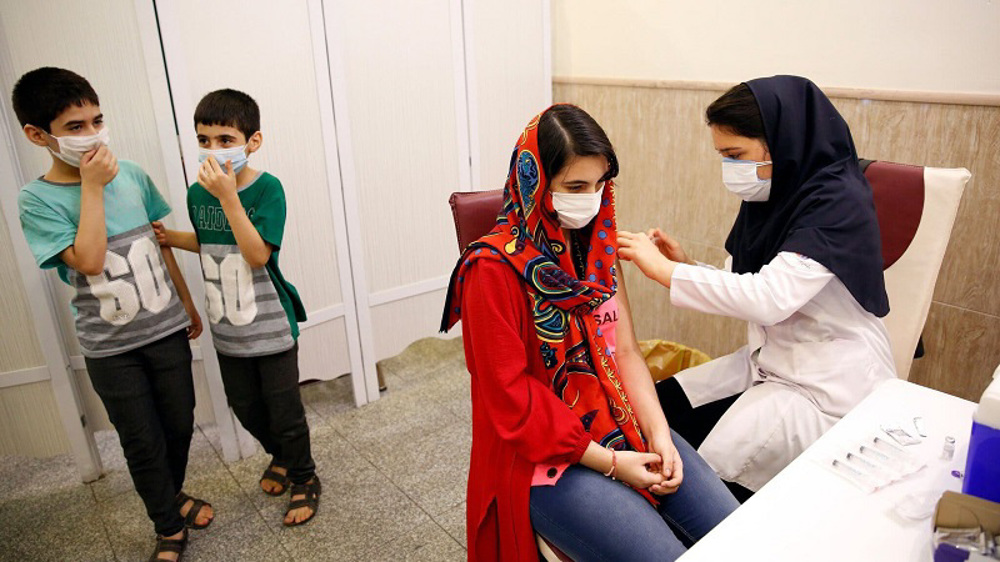
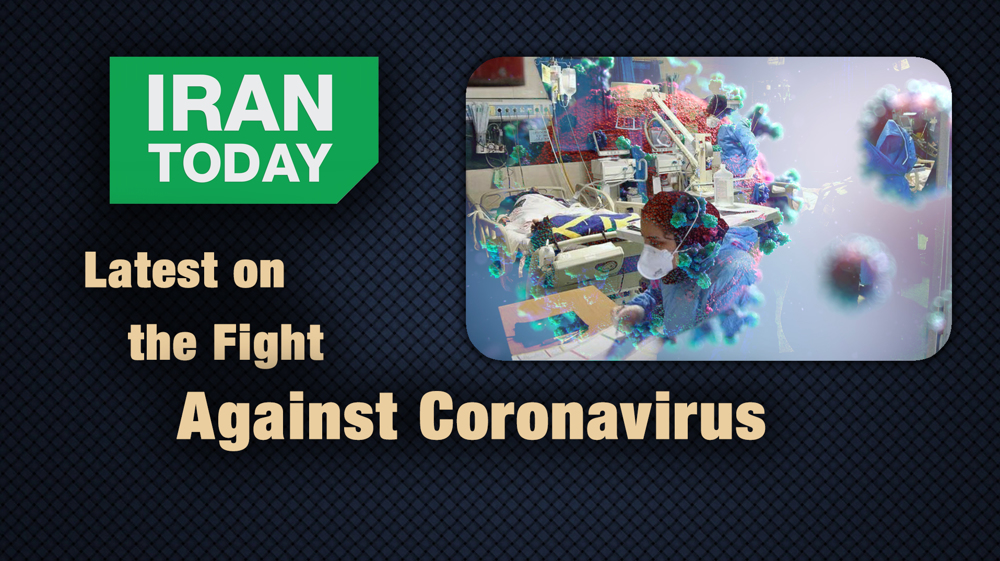
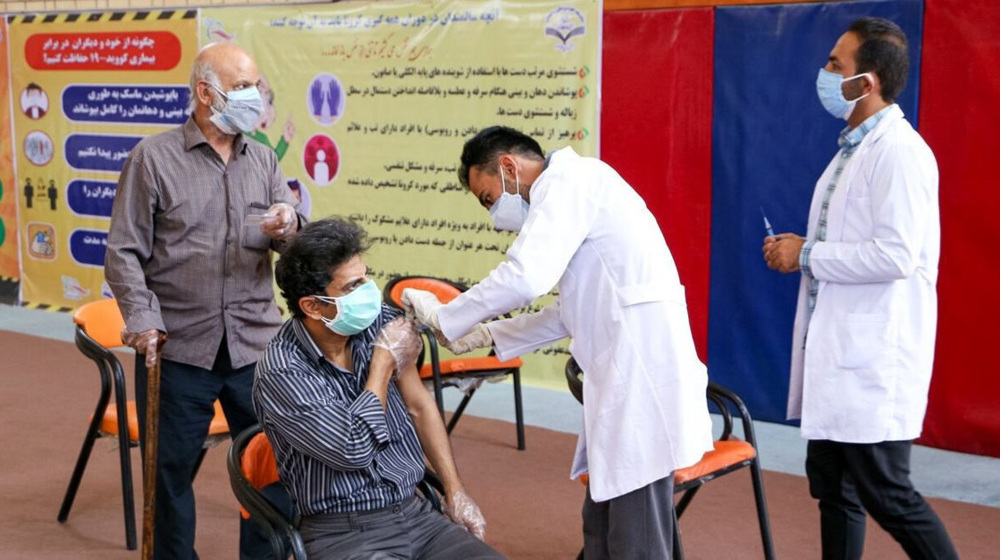
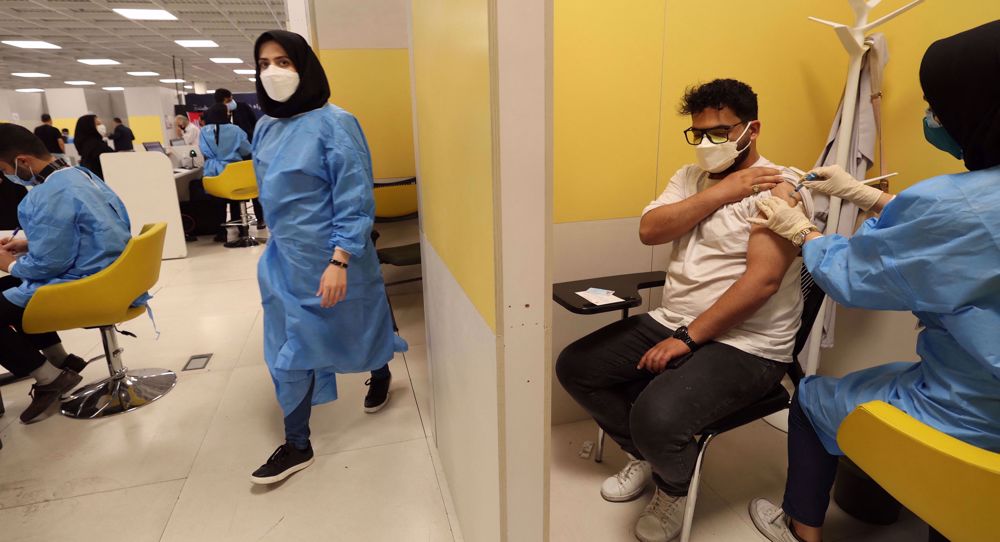
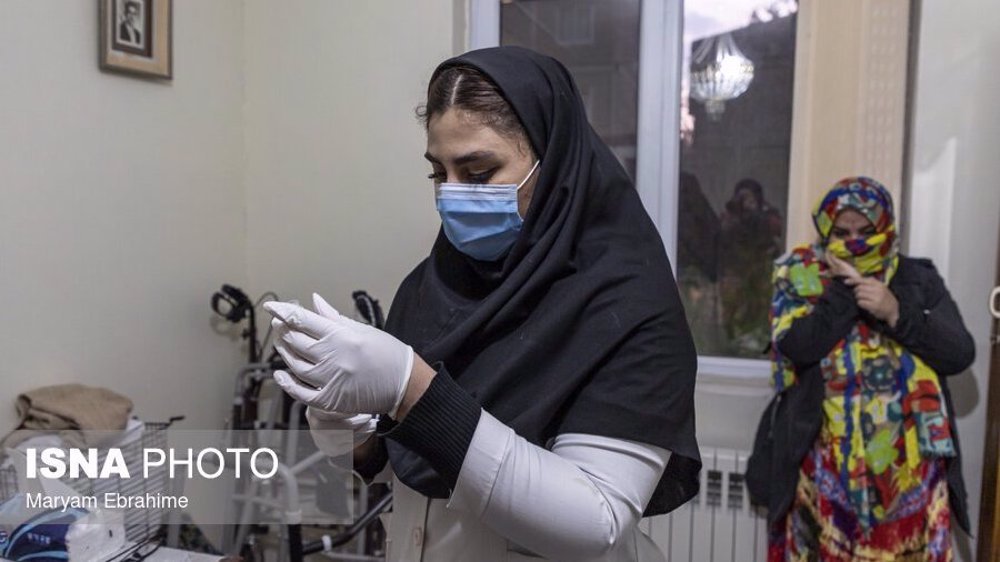
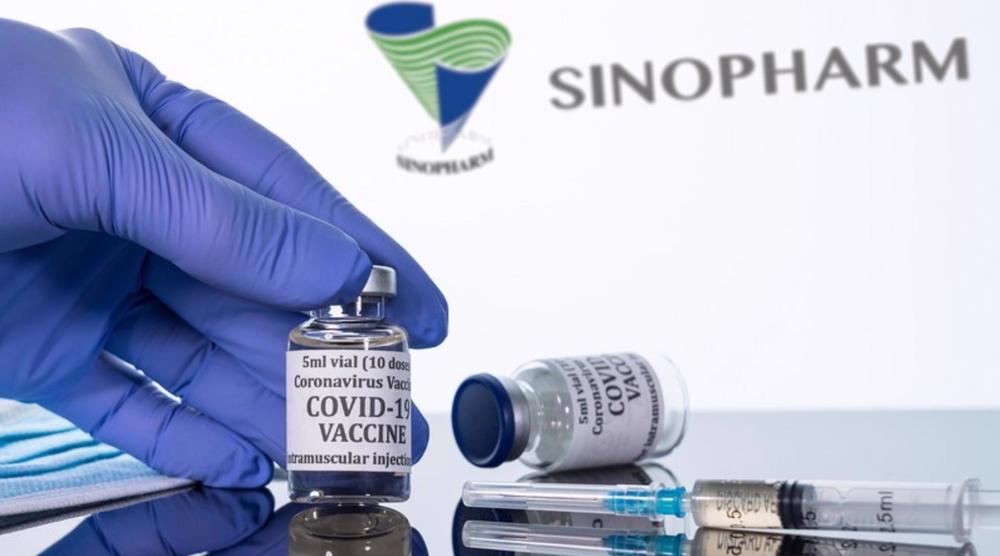
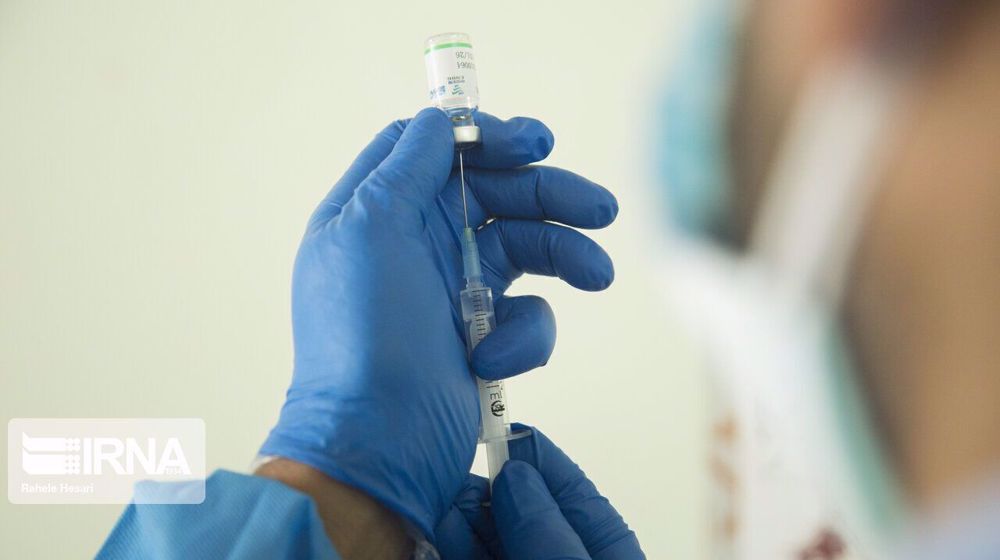
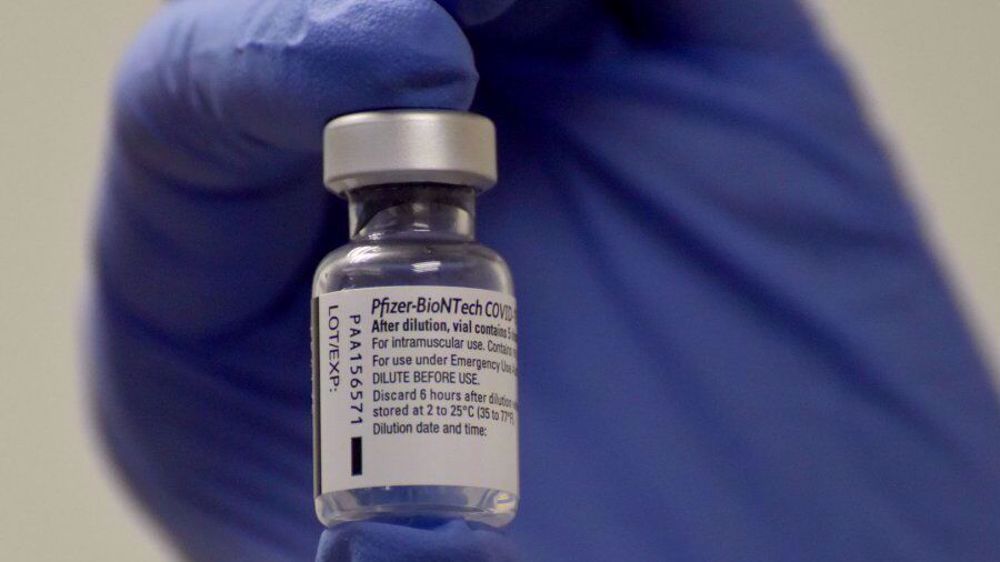
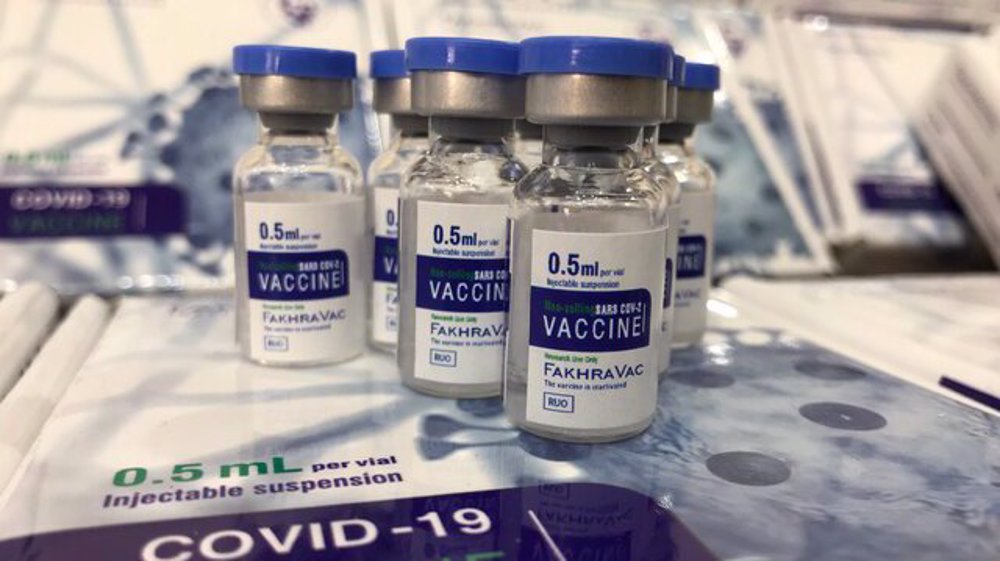
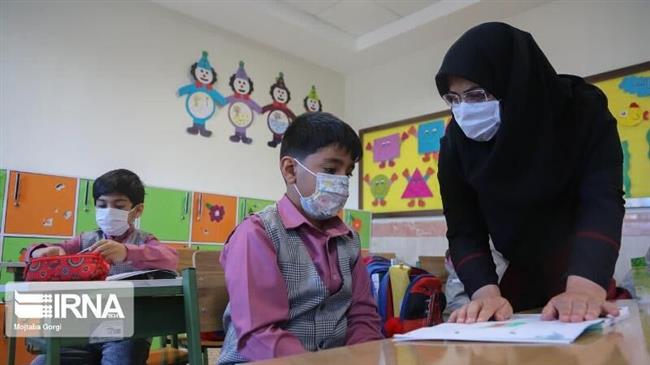
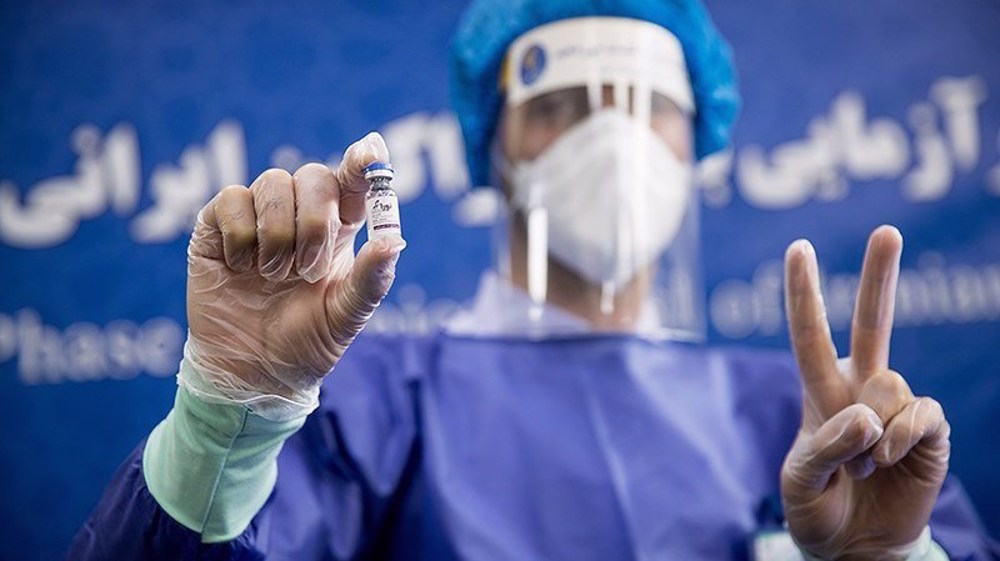
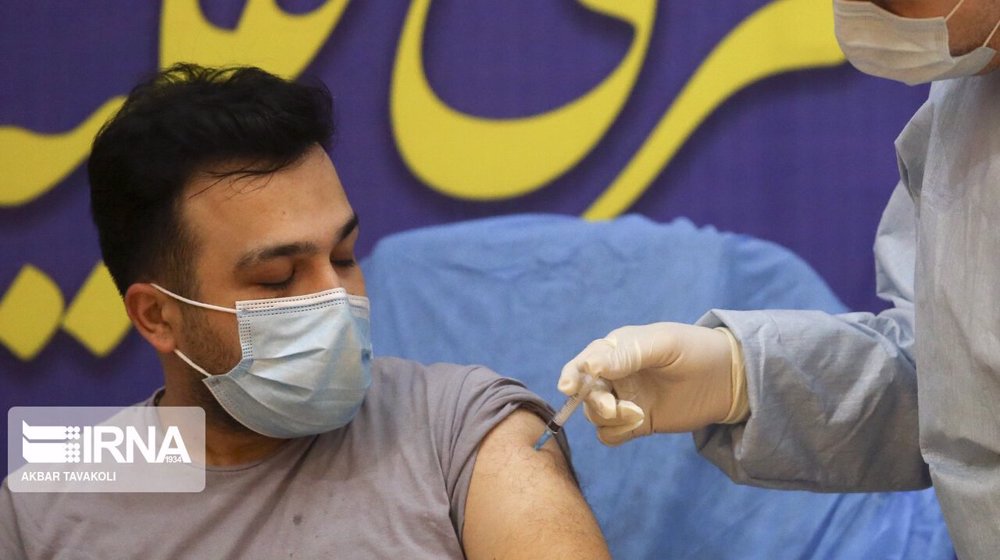
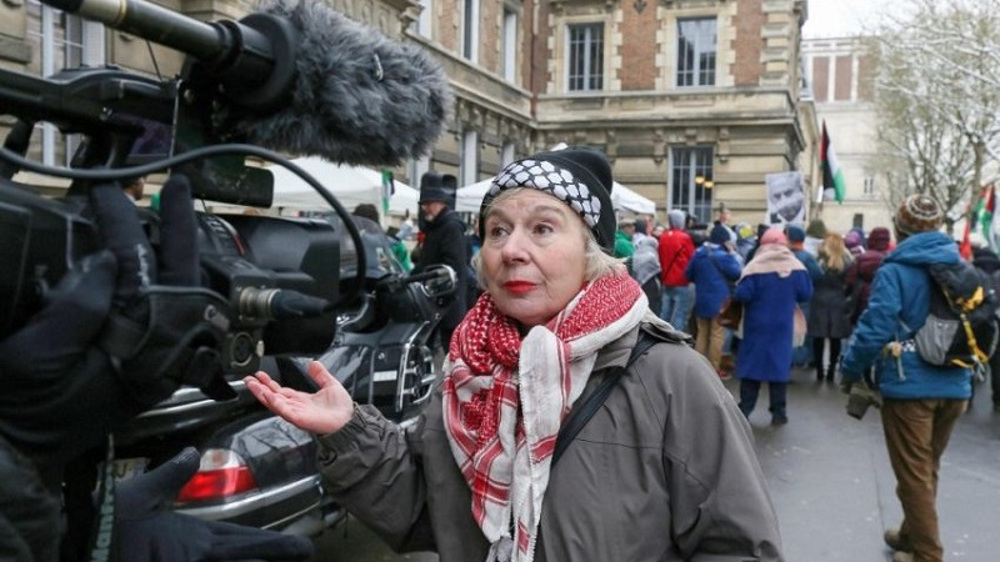
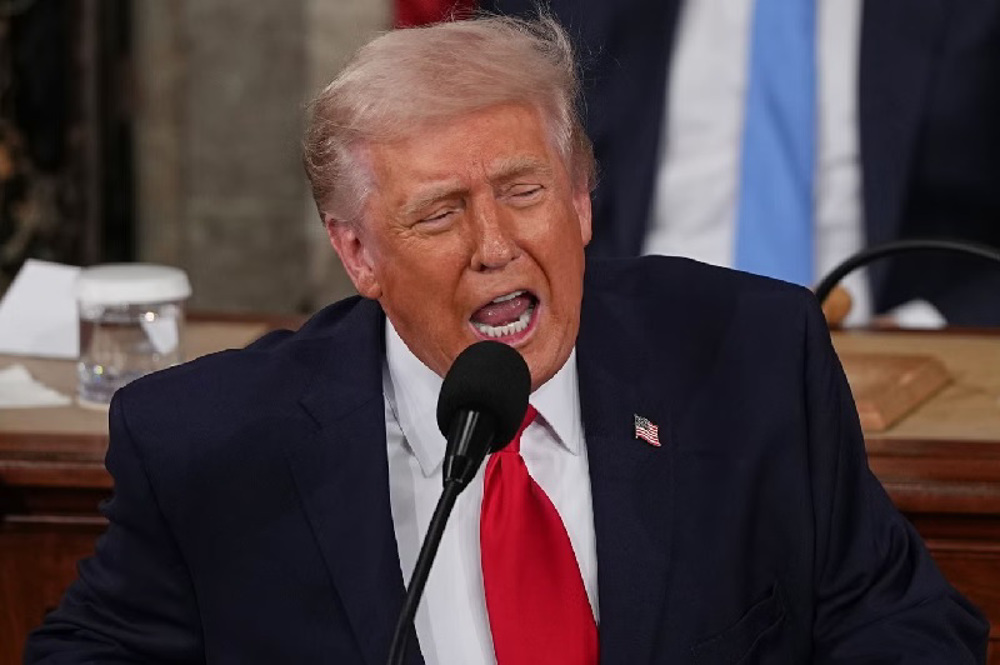




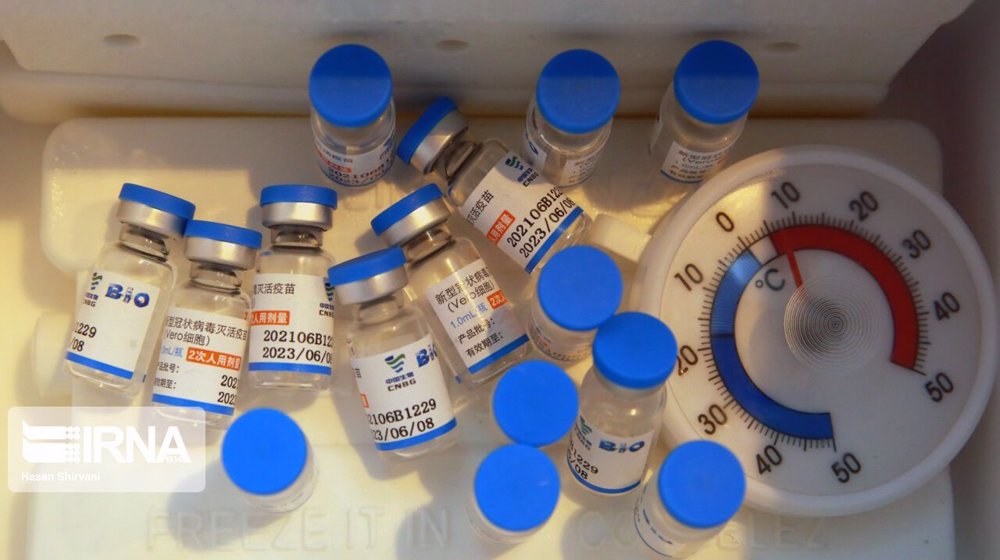
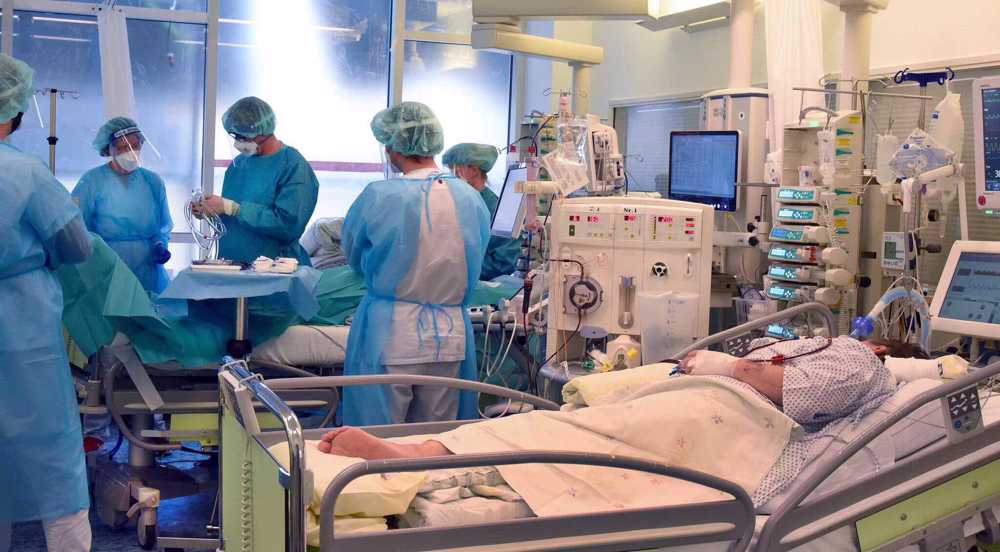
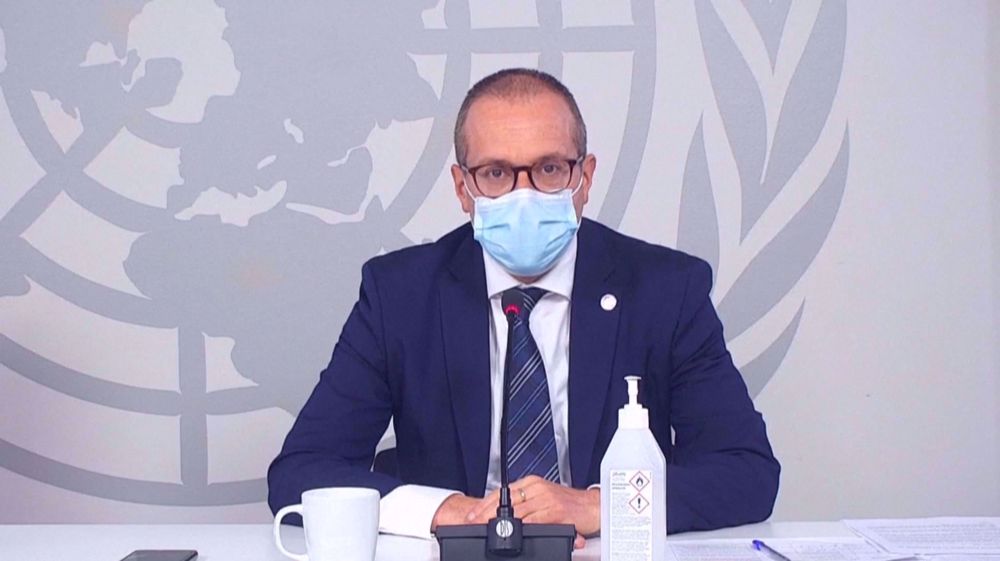
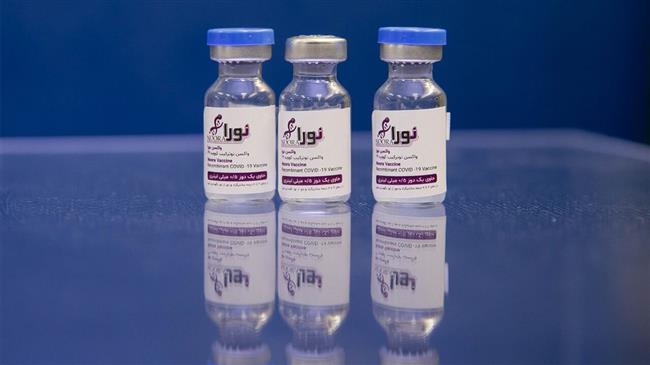
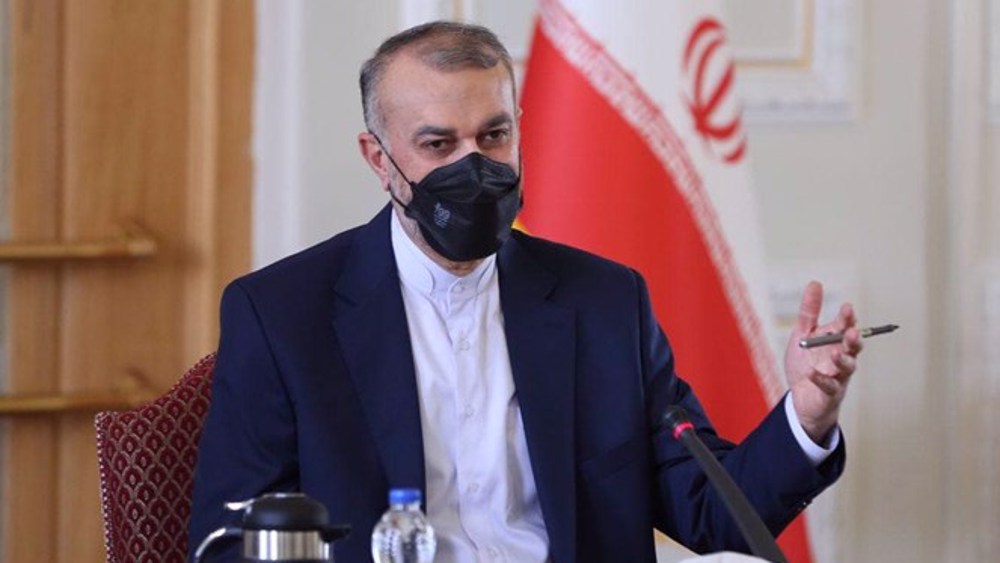
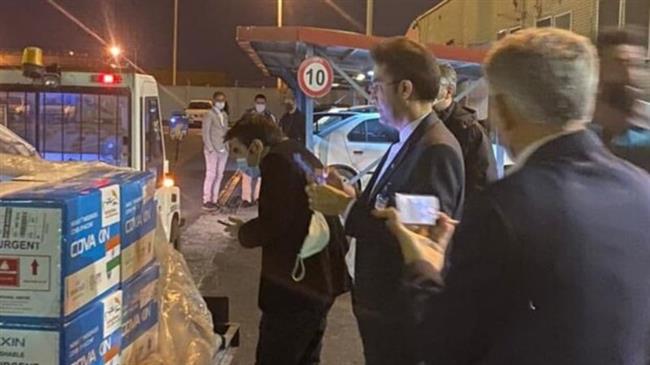
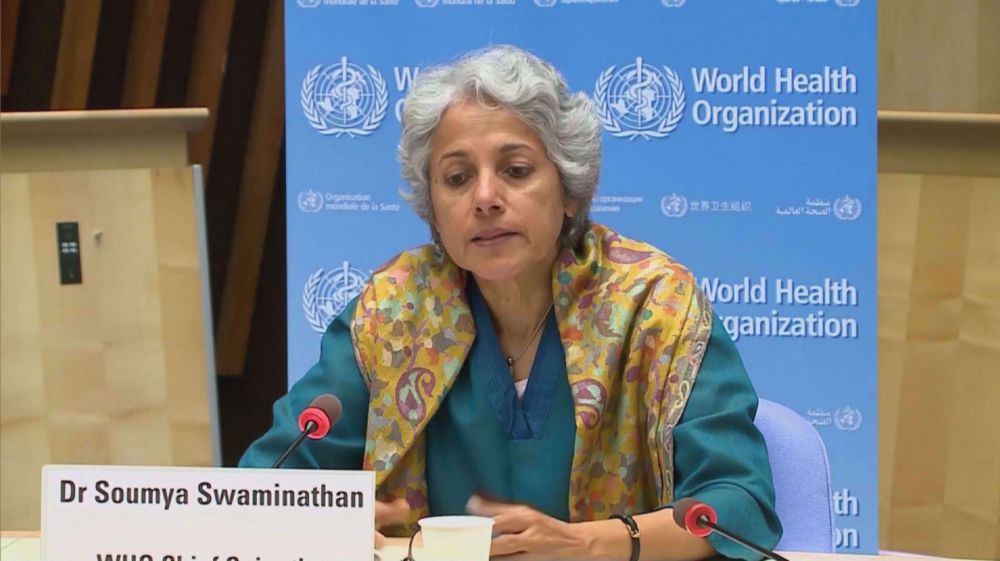


 This makes it easy to access the Press TV website
This makes it easy to access the Press TV website